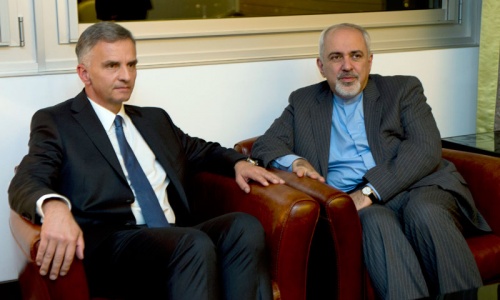WASHINGTON, Nov 30: President Barack Obama has decided to retain US sanctions on petroleum and petroleum products from Iran, dashing hopes that a recent nuclear deal would make it easier for Pakistan to buy Iranian gas.
“There is a sufficient supply of petroleum and petroleum products from countries other than Iran to permit a significant reduction in the volume of petroleum and petroleum products purchased from Iran by or through foreign financial institutions,” Mr Obama said in a statement issued by his office.
The statement made it clear that Iran would have to first forgo its controversial nuclear weapon programme before sanctions on its oil industry were removed.
“I will closely monitor this situation to ensure that the market can continue to accommodate a reduction in purchases of petroleum and petroleum products from Iran,” Mr Obama said.
The Geneva deal, however, says that the United States and its Western allies have agreed also to “suspend US and EU sanctions on Iran’s petrochemical exports, as well as sanctions on associated services.”
The clause raised hopes in Islamabad where government officials said that an understanding between the US and Iran would also help them build a pipeline to bring the much-needed natural gas from the neighbouring country.
In a separate statement issued on Saturday, Secretary of State John Kerry also made it clear that this clause would not benefit Pakistan.
“The Joint Action Plan agreed in Geneva does not offer relief from sanctions with respect to any increases in Iranian crude oil purchases by existing customers or any purchases by new customers,” he said.
US sanctions on the Iranian will remain intact until P5+1 and Iran reached “a comprehensive agreement” for ending Iran’s nuclear pursuit, he added. “Tehran would get relief from some other economic sanctions under terms of the deal.”
Mr Kerry also noted that China, India, the Republic of Korea, Turkey and Taiwan had made “additional significant reductions” in the volume of their purchases of Iranian crude oil. This once again qualified them for an exception to US sanctions intended to discourage other nations from buying oil from Iran, he added.
As part of the Joint Action Plan agreed to by the P5+1 and Iran, “we will pause for six months our efforts to further reduce Iran’s crude oil sales,” Mr Kerry said.














































